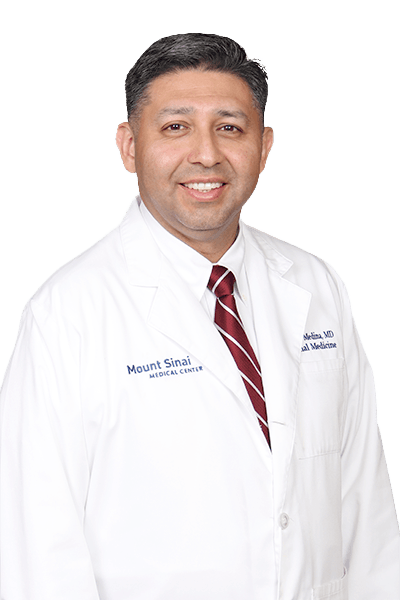Medical Counseling
Primary care physicians are skilled at educating individuals about general health concerns, assessing psychosocial circumstances, and counseling patients about health risk behaviors. Various strategies can be implemented to help patients understand the impact of health risk behavior and enhance motivation for change. Primary care physicians build relationships with patients and develop personalized treatment plans to support patients who would like to change their health behaviors.
- Alcohol use disorder: Drinking excessive amounts of alcohol can be problematic for individuals, especially if the amount of alcohol used cannot be controlled or if drinking leads to unemployment, legal problems, or poor family relationships. Alcohol use disorder can also cause liver disease, heart conditions, and various types of cancer. Primary care physicians regularly screen for alcohol use disorder. Physicians can implement interventions in combination with medication to treat alcohol use disorder. Sometimes, referral to an addictions counselor, a psychiatrist, or a social support group like Alcoholic Anonymous can help patients curtail alcohol use.
- Depression: Depression is a serious health problem that reduces quality of life and increases the risk of suicide. Patients with depression can also suffer from other disorders, including anxiety, substance use disorders, and heart disease. Primary care physicians routinely screen for depression, co-morbid disorders, and suicidal thoughts. Physicians can address risk factors that exacerbate depression, refer patients to mental health providers, and counsel patients regarding psychosocial issues.
- Fall prevention: Older patients are at risk of falls for many reasons, including vision impairment, arthritis, and poor balance. Falls can result in bruising, fractures, and life-threatening head injuries. Medications, illness, and an unsafe environment may increase the likelihood of falling. Primary care physicians will often assess patients for fall risk by inquiring about prior episodes of falling, gait instability, and medications. Risk of falling can be reduced by conducting a home safety assessment and implementing measures to make the home safer. Physicians can also provide patients with safety devices and refer patients to physical therapy to improve strength and balance.
- Nutrition: Good nutrition is important for maintaining health and avoiding the development of chronic diseases. Nutrition takes into account fiber intake, sugar and salt content, fat considerations, and the amount of vitamins and minerals found in food. Primary care physicians often discuss nutrition within the context of disease. Physicians encourage healthy eating to avoid the development of heart disease, stroke, cancer, and diabetes. Patients with established diseases, like hypertension and heart failure, receive personalized counseling to optimize management of disease and prevent complications.
- Smoking cessation: Smoking leads to heart disease, stroke, cancer, emphysema, and osteoporosis. Smoking cessation improves health, greatly reduces the risk of developing disease, and helps individuals live longer. Physicians will discuss smoking cessation to promote good health and prevent disease complications. Counseling includes the identification of smoking triggers and developing strategies to resist cravings. Physicians often recommend medications to help patients stop smoking.
- Weight loss: Obesity is a national epidemic that contributes to the development of many diseases and conditions. Diabetes, hypertension, heart disease, sleep apnea, and cancer are some examples of diseases associated with obesity. Individuals with obesity are at increased risk of dying younger than those who have a normal weight. Primary care physicians routinely check a patient’s weight and calculate the body mass index to screen for obesity. Physicians are knowledgeable about weight loss and can develop individualized weight loss programs with patients. Common weight loss strategies include lifestyle changes, exercise, eating less calories, use of weight loss medications, and bariatric surgery.
Our Physicians
- Mount Sinai Medical Center (Main Campus)
- 305.674.2998
Ortal Babaev, DO
- Internal Medicine
- Mount Sinai Primary & Specialty Care Midtown
- 786.598.4560
- Mount Sinai Primary & Specialty Care Miami Shores
- 305.891.3710
Rubal Bhangal, MD
- Internal Medicine
- Mount Sinai Primary & Specialty Care Miami Shores
- 305.891.3710
Daniela Bignoli, MD
- Internal Medicine
- Mount Sinai Emergency Center and Primary & Specialty Care Hialeah
- 786.584.5000
Vivian S Birnbaum, MD
- Concierge Medicine
- Internal Medicine
- Mount Sinai Medical Center (Main Campus)
- 305.692.1074
- Mount Sinai Emergency Center, Physician Offices, Cancer Center and Diagnostic Center Aventura
- 305.692.1080
Raul Caner, MD
- Internal Medicine
- Mount Sinai Primary Care Key West
- 305.434.9188







